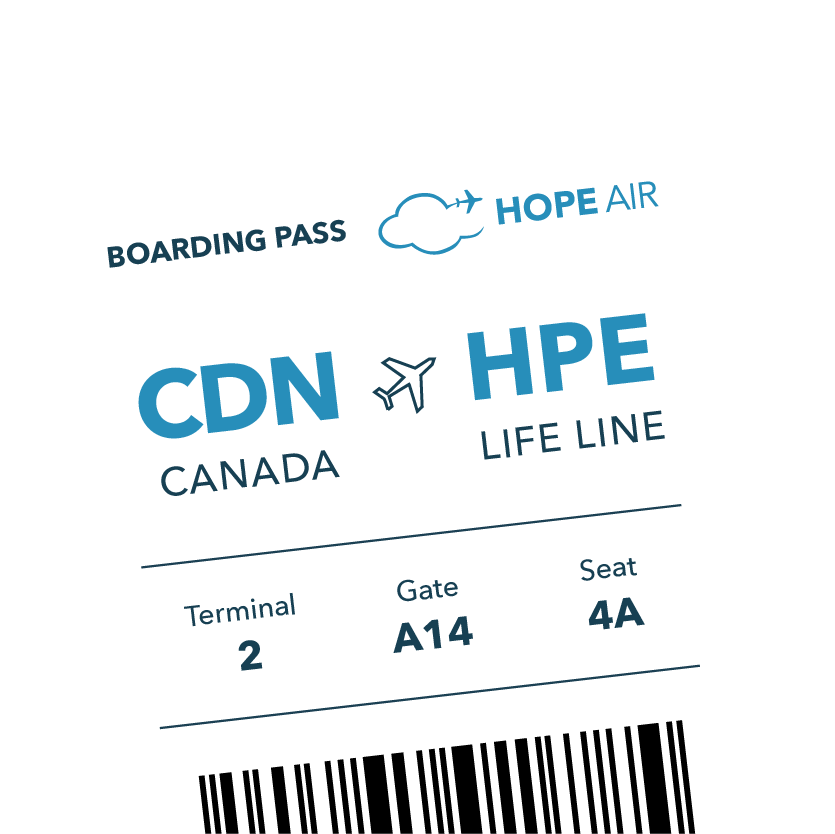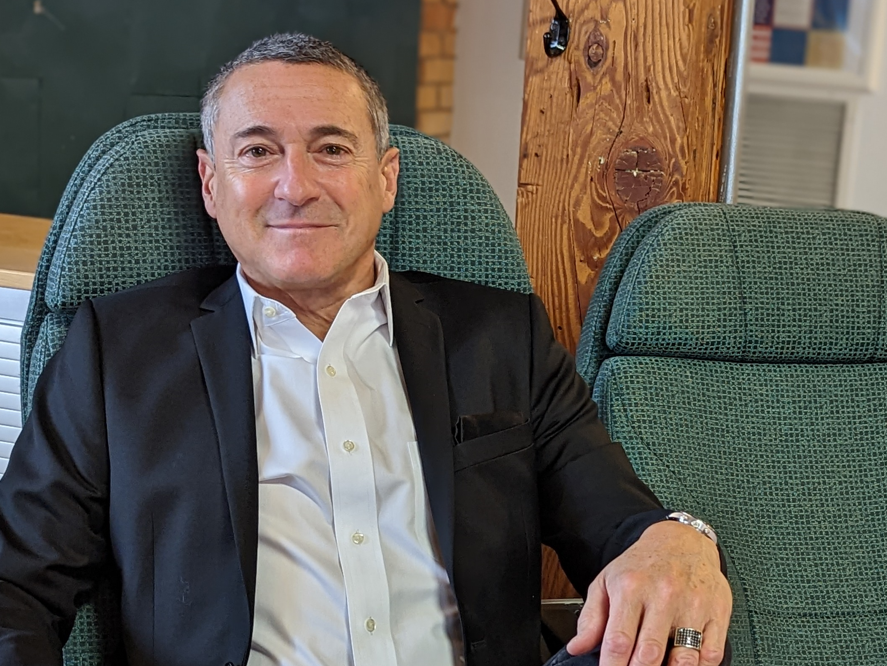Making sure no one is left behind when accessing medical care
Making sure no one is left behind when accessing medical care


Just a few short years ago, Tapp, like many urban Canadians, was unaware of the healthcare accessibility issues faced by those living outside of city centres. Even though he was engaged in causes related to healthcare, he had no experience with long-distance healthcare or the people who require it.
“I’ve done extensive volunteer work, as a foundation board member, supporting healthcare charities in the past, including supporting major fundraising campaigns for Toronto-area hospitals,” says Tapp. “On a personal level, my experience with helping someone get to care was driving my best friend with prostate cancer a few short blocks to get to their appointments.”
But when Tapp first found out about Hope Air after reading a LinkedIn post, he immediately connected with the organization’s mission to support access to care for low-income Canadians living up to 12 hours or more from the medical centres they need. He was moved to act.
“As I learned more about the cause, it became so tangible and the value proposition truly resonated with me,” Tapp reflects. “There are so many concrete examples of experiences that I could relate to—diagnoses that were hard to imagine in the best of situations, let alone needing to travel for hours, often multiple times, at significant personal expense just to try to get well. When you are sick, all you should have to focus on is the treatment and getting better, not the logistics.”
Now, Tapp is committed to helping ensure patients need only focus on getting well by supporting Hope Air’s work to reach people even in the most remote parts of Canada and get them to their vital appointments. He is also dedicated to spreading the word about Hope Air, which he says fills a crucial gap in Canada’s healthcare system and needs increased attention and support.
“What I value about Hope Air is that their work is truly unique. As the only national charity helping people travel for medical care, they’re filling a need that our universal healthcare system and our world-class hospitals in city centres cannot address on their own,” says Tapp. “More than that, they’re providing multidimensional support. It’s not just the patients, but the Volunteer Pilots who give their time and talents when commercial airlines can’t service a patient, and also programs like accommodations, meals, and rides that address some of the hidden expenses of traveling for care. Hope Air is truly a one-of-a-kind game changer.”
After visiting several doctors near his home and in Thunder Bay, Roger was diagnosed with compartment syndrome, a condition where his muscles expanded as if he had done strenuous exercise. Compartment syndrome is a rare condition where, untreated, causes nerve damage, amputation, loss of muscle function, and kidney failure, among other consequences. Doctors did not know what caused Roger’s condition, but knew that it needed urgent medical intervention.
We acknowledge that we live and work on the unceded, traditional territories of many Indigenous peoples. We are grateful for the privilege of being on lands that these peoples have nurtured since time immemorial.
Exigences de mise à jour des connaissances:
- Au moins 50 heures en tant que commandant de bord sur un avion et 30 heures comme CdB
au cours des 12 derniers mois. - Au moins un vol transnational dans les 90 derniers jours
- Au moins 3 heures comme CdB sur type dans les 90 derniers
jours - Doit satisfaire aux exigences de mise à jour des connaissances des pilotes de Transports Canada: https://tc.canada.ca/fr/aviation/delivrance-licences-pilotes-personnel/garder-ses-connaissances-competences-pilote-jour
Veuillez noter que tous les pilotes bénévoles doivent être entièrement vaccinés contre la COVID-19.
Pour toute question ou préoccupation, veuillez contacter Andrew Knight à aknight@hopeair.ca
Coordonnées
[wpforms id=”10162″ title=”false”]
[wpforms id=”10164″ title=”false”]
[wpforms id=”7772″ title=”false”]
[wpforms id=”7621″ title=”false”]
[wpforms id=”7616″ title=”false”]
[wpforms id=”7593″ title=”false”]
[wpforms id=”7585″ title=”false”]
[wpforms id=”6240″ title=”false”]
[wpforms id=”3576″ title=”false”]
[wpforms id=”3571″ title=”false”]
[wpforms id=”3560″ title=”false”]
[wpforms id=”3513″ title=”false”]
Recency Requirements:
- At least 50 hours PIC on aircraft and 30 hours PIC in the past 12 months
- At least one cross-country flight in the last 90 days
- At least three hours PIC on type in the last 90 days
- Must satisfy the Transport Canada Pilot Recency Requirements: https://tc.canada.ca/en/aviation/licensing-pilots-personnel/staying-current-proficient-pilot
Please note, all volunteer pilots must be fully vaccinated for COVID-19.
For questions or concerns, please contact Andrew Knight at aknight@hopeair.ca
Contact Information
[wpforms id=”3488″ title=”false”]
[wpforms id=”3273″ title=”false”]